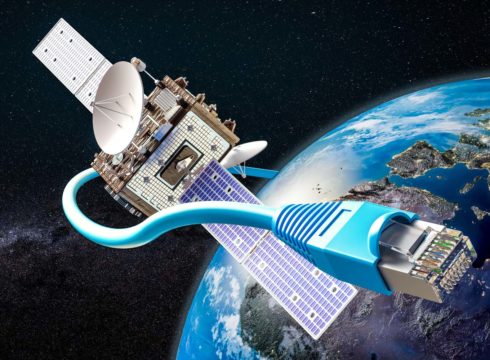SUMMARY
SpaceX has asked the Indian government to facilitate approvals for the use of satellite technology to further internet access in remote rural areas
Starlink will consist of 4,400 small satellites, each weighing about 260kg, in the low Earth orbit
SpaceX’s comments about satellite technology for internet access in India came as part of a TRAI consultation on enhancing broadband access and penetration in India
Inc42 Daily Brief
Stay Ahead With Daily News & Analysis on India’s Tech & Startup Economy
US-based aerospace manufacturer and space transportation services company SpaceX has asked the Indian government to facilitate approvals for the use of satellite technology to further internet access in remote rural areas of the country.
In a filing with the Telecom Regulatory Authority of India (TRAI), Patricia Cooper, vice president, satellite government affairs at SpaceX, while referring to her company’s constellation of 4,400 satellites called Starlink, said, “Powerful next-generation satellite systems flying today that can reach all corners of the country with high-speed affordable service are critical to bridging the digital divide.”
Starlink, once built fully, will consist of small satellites, each weighing about 260kg, in the low Earth orbit (altitude of 2,000 km). These satellites would enable broadband internet access at reasonably low latency. SpaceX is targeting the launch to beta test for Starlink in Northern Canada and the US this year. The company plans to rapidly expand to near-global coverage of the populated world by 2021.
SpaceX’s comments about satellite technology for internet access in India came as part of a TRAI consultation on enhancing broadband access and penetration in India. The company’s representation to TRAI can be seen as an indication of its plans for launching Spacelink in India in the near future.
“A diverse mix of broadband technology platforms and service providers, including those new to India’s market, will best accelerate broadband access across the nation,” she said. “SpaceX stands ready to discuss how innovation in satellite design, deployment and ground networks can support the country’s broadband goals.”
Meanwhile, last month, the Indian Space Research Organisation (ISRO) also released a draft Space Communications Policy, which encouraged policy measures to boost private participation in the space communications sector. The policy talks about the need to harness satellite communications by making it easier for private players to introduce satellite broadband.
Some of the policy measures outlined in ISRO’s draft paper talked about re-assigning unused orbital resources to entities that are better prepared to use them; involving Indian industry; and, the setting up of an autonomous body under the Department of Space (DoS), to be named the Indian National Space Promotion & Authorization Center (IN-SPACe), which will be tasked with clearing space communications projects.
Founded in 2002 by Elon Musk, SpaceX, in its comments to TRAI, has said that India should encourage technology-neutral broadband definitions that reflect the advances of next-generation satellite services; extend blanket licensing tools to support the wide-spread availability of satellite user terminals; safeguard ongoing satellite innovation in higher frequency bands; and, consider the unintended fees, taxes and other administrative burdens that, when passed on to end-users, can make broadband unaffordable to many.
Note: We at Inc42 take our ethics very seriously. More information about it can be found here.


